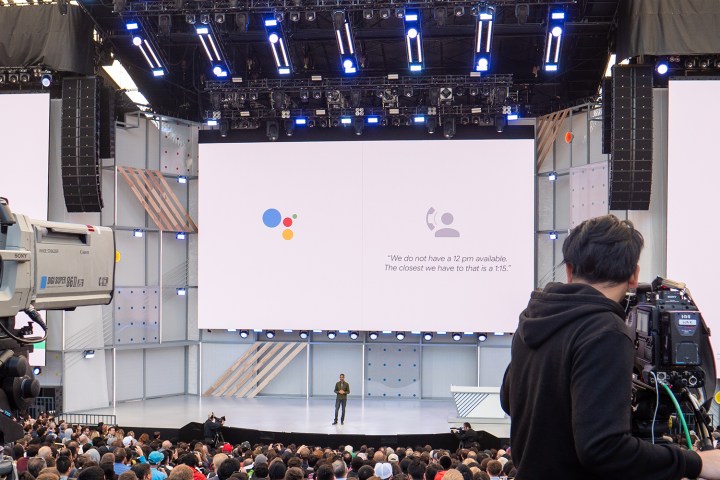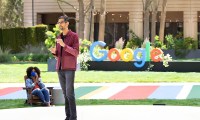
Last week, Microsoft and Google gave us competing views of the future of computing.
“The world is becoming a computer,” Microsoft CEO Satya Nadella said at Build, honing its demos on artificial intelligence and cloud computing. Like Microsoft, Google demoed how voice can be given to AI systems, but Google’s I/O demos were more consumer-driven, which probably explains the results of the poll we took below. Android P, self-driving cars, and a smarter Assistant turned out to be more relatable than business drones and digital conference rooms for most people.
.@Microsoft Build and @Google I/O are over. Which company came out on top? #io18 #MSBuild
(Please RT for a greater sample size.)
— Digital Trends (@DigitalTrends) May 14, 2018
One of the most memorable moments from either conference was Google’s Duplex demo, which simultaneously excited and terrified the entire internet. Duplex leverages Google’s advanced work with natural speech, and the technology was shown incorporated into Assistant to give it a variety of voices and the ability to make phone calls on your behalf. At the onset, Assistant can only handle simple calls, like scheduling appointments, and the results were nothing short of impressive. Assistant sounded human, and its voice and speech was very natural, and it definitely overshadowed Microsoft’s demo of how Cortana and Alexa will be integrated.
Perhaps the biggest testament to how natural Assistant sounded when it made calls on your behalf is the backlash Google received. Consumers are questioning the ethics of having a computer “fool” receptionists into thinking that they are talking to a human, leading Google to amend its policy to disclose Assistant-made calls in the future.
Microsoft’s most tangible demo was its conference room technology, where Cortana was able to identify all attendees in a conference room and offer more precise closed captioning by offering real-time meeting transcripts denoting what was said and by whom. Microsoft claims that this will improve accessibility, and its demo showed how a deaf employee was able to collaborate with her colleagues thanks to Cortana’s help. On the other hand, Google took a medical approach to accessibility, by using AI for faster disease diagnosis, leading to better patient outcomes. This makes specialty care more accessible, Google said.
Google may notch an early win today with Google Assistant’s Duplex technology proving that we can give voice to AI, but Microsoft’s early bet on the intelligent edge and the intelligent cloud may better prepare it to affect bigger changes in the future. Microsoft is reconstructing the foundation for its future, and Google is still building its house.
Editors' Recommendations
- Google Sheets vs. Microsoft Excel: Which is better?
- What is MusicLM? Check out Google’s text-to-music AI
- Google Bard can now create and edit images, courtesy of Adobe
- Google Bard vs. ChatGPT: which is the better AI chatbot?
- Google missed big chance with ChatGPT-like tech, report claims



